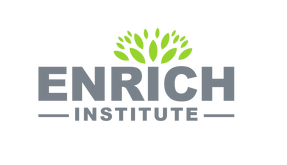|
Anne Lemaistre Literacy is a fundamental human right as well as a foundation for life-long learning and continued human capital development for inclusive and sustainable development. Literacy and development have a very close relationship. Evidence shows a very high direct link between the literacy attainment of people and the development status of a country. The higher the literacy rate, the higher the socio-economic and human development of a nation. Hence, literacy not only empowers individuals, families and communities, but it also reduces poverty, improves quality of life, helps to attain gender equality and ensures peace, democracy and sustainable development.
As an example, literate parents provide a better education and learning environment for their children at home and encourage their children to attend school. The International Literacy Day was annually celebrated on September 8 to emphasise the importance of literacy to individuals, communities and society as a whole. It also draws the attention of the international community regarding the current status of literacy globally. This year the international theme was “Literacies for the 21st Century”, while Cambodia had chosen its national theme to be “Literacy Contributes to Community Development”. In Cambodia, literacy plays an indispensable role in providing individuals the knowledge and life skills to improve their socio-economic status and general well-being. It also strengthens communication skills and builds self-confidence and self-esteem; all of which are necessary for making informed decisions for improved livelihoods. In addition, literacy can equip community people with values of national identity, tolerance and a sense of community with global perspectives. In contemporary rapidly changing, knowledge-based societies, literacy plays a crucial role in instilling mutual understanding among people and building peace within their communities. “In the 21st century, more than ever before, literacy is the cornerstone of peace and development,” Irina Bokava, UNESCO’s director-general, said. According to the 2008 National Population Census, Cambodia has achieved a gradual increase of about 10 per cent adult literacy rate from 67.3 per cent in 1998 to 77.6 per cent in 2008. The census further highlights the relationship between literacy and other characteristics, namely fertility rate, employment status and type of occupation. Between 1998 and 2008, age specific fertility rates were found to be lower for literate than illiterate women. The literate populations were found to have higher employment status than the illiterate. It was also found that the majority of the illiterate population was engaged in sectors such as agriculture, forestry and fishery than literate individuals. This has direct implications, for example, on improving agricultural productivity as the illiterate farmers are unable to adopt modern agricultural practices, which require basic literacy skills. The steady increase of literacy rates clearly indicate Cambodia’s continued commitment in providing access to literacy opportunities to all children and adults despite its limited resources. Although we can see the gradual progress and constant effort made in the past decade, Cambodia still faces several challenges that need immediate responses. High illiteracy rate is still a major concern for the country. The 2008 census reveals that 2.l million people (22.4 per cent of the total population) are illiterate. There are huge gaps in literacy rates among male and female, urban dwellers and the rural poor and disadvantaged, hard-to-reach and ethnic minority groups. In this context, Cambodia needs to work collaboratively with all relevant stakeholders to continue its work towards promoting literacy and expanding the existing literacy programs to reach its Education For All (EFA) literacy goals by 2015. Without making such efforts to accelerate literacy, Cambodia may miss its target literacy EFA goals. In this aspect, the Ministry of Education, Youth, and Sport (MoEYS) has closely cooperated with UNESCO, international organisations, local NGOs and other concerned stakeholders to ensure that Cambodia realises its EFA literacy targets within the expected timeframe. The Country Literacy Acceleration Plan (CLAP) 2013-2015 drafted by MoEYS, with the support of UNESCO, as part of the Capacity Development for Education for All (CapEFA) Program, is in its final stage. The CLAP supports capacity strengthening of NFE sub-sector (at all levels), establishment of platforms for partnerships and dialogues on literacy promotions among Department of Non-Formal Education/Provincial Office of Education/District of Education, local/international donors/NGOs, and other literacy providers. It strengthens evidence-based planning, budgeting, monitoring and policy development through operationalisation of a functioning Non-Formal Education Management Information System (NFE-MIS) at the national and provincial levels. Upon the endorsement by the Minster of Ministry of Education, Youth, and Sport, the CLAP will pave the way for programming and allocating resources for additional literacy classes for the people who are not able to gain access to formal education to acquire the basic literacy and life skills for improved livelihood. Furthermore, there are other initiatives catalysed and coordinated by UNESCO to improve the literacy status in Cambodia. For example, UNESCO is supporting the Department of Non-Formal Education to better coordinate the Non-Formal Education (NFE) sub-sector by facilitating establishment of a Sub-Technical Working Group which brings the government, development partners and NGOs active in the sub-sector. UNESCO also supports the revitalisation of the Community Learning Centers. About the author: Anne Lemaistre is the UNESCO Representative in Cambodia. Note: This article originally in the Phnom Penh Post on September 10, 2013.
0 Comments
Leave a Reply. |
Categories
All
Archives
October 2017
Disclaimer: All views expressed here belong to their respective author and do not represent the views of Enrich Institute
|

 RSS Feed
RSS Feed
